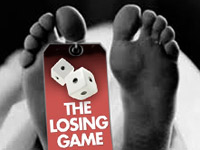
The issues surrounding gambling in The Bahamas have always been colored by whatever the popular political view prescribed them to be.
There have been no formal announcements until recently as party leaders checked the temperature of the electorate through cautiously worded promises about the idea of a referendum or at the other extreme of telling us that we really cannot do anything about the problem.
Although we are inclined to the latter, these two extremes allow the public all the space needed to discuss what is between.
And, that is a very wide chasm indeed, a large smokescreen.
However, I have decided not to take the bait and deal with a more significant issue that has its beginnings more than 40 years ago.
I think it was 1968 when the deputy prime minister was interviewed by a reporter in Miami on the gambling situation in The Bahamas.
The Miami folks were on edge about the prospect of legalized gambling in The Bahamas for good reason; and the reporter was told at that time that all current gambling licenses would not be renewed when they expired.
This position was taken to the campaign trail in 1972, primarily due to the mess that erupted in Freeport in the early and mid-sixties, which was seen by many as one of the reasons the Progressive Liberal Party (PLP) came to power in 1967.
It was the first time I voted, 1973, and I remember the “independent theme” of that campaign.
This nation was going on record as one that was not going to be turned around or be in subjection to any foreign power.
We were going to plot our own course, but something happened a couple of months after July 10, 1973.
There was a statement in the press, which caused the Christian council of that time to call an urgent meeting with Prime Minister Lynden Pindling.
Gambling was going to be legalized.
The Reverend R.E. Cooper, who had preached the first sermon in an independent Bahamas, led the delegation to that meeting looking for an answer or trying to achieve a compromise, but to no avail.
Carlton Francis, a Cabinet minister in the Pindling administration and ordained Baptist minister, took a stand on the principle clause found in the preamble of a brand-new constitution and was crushed by his party.
It was as if in the blink of an eye we had forgotten the promise we had made to the God who had kept His promise to us and “led us all the way,” Deuteronomy 8:2.
There are many voices blaring out on the gambling issues and comparisons are being made to sway the populace into thinking that the benefits outweigh the vices, but those of us who see what is really at stake cannot afford to let this moment pass and not voice our concern.
The Baptist community may be concerned more than the rest of us, since one of their own has taken a stand that is diametrically opposed to the terrible price that a couple of their finest sons had to pay for their stand on the gambling issue almost 40 years ago.
For those of us who are biblically inclined, the number 40 is something that you really don’t want to play with.
Edward Hutcheson



